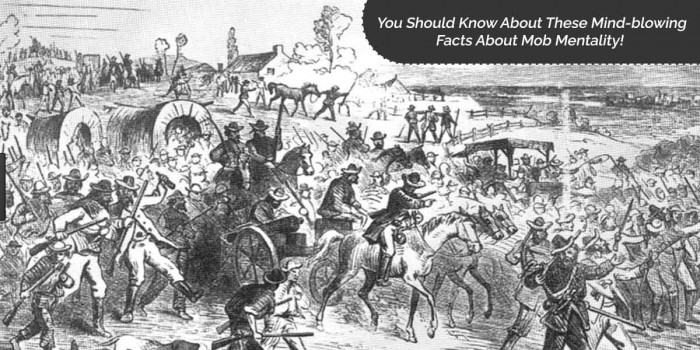Galatea Effect: High Self-Expectations Lead to High Performance
If you think you can, you can. And if you think you can’t, probably you can’t. The power of self-expectations is vital in succeeding in personal and professional life. Galatea effect deals with just that, read on here to know more.

Norman Vincent Peale has rightly said,
“Believe in yourself! Have faith in your abilities! Without a humble but reasonable confidence in your powers, you cannot be successful or happy.”
The expectations of an individual from himself or herself and from the leaders play a key role in their performance or non-performance. Galatea Effect and Pygmalion effect deal with this power of expectations and mold a person’s motivation at the workplace. Not only work, but it is of utmost importance in other spheres of life as well.
What Exactly is Galatea Effect?

The power of your own expectations is Galatea Effect. It is that part of the motivation that relies on self-expectations. It is crucial for harnessing the power of an individual’s self-expectations for a productive and more fruitful life.
‘I believe I can’ is the manner of thinking of an individual who applies Galatea Effect in one’s life, whether it is personal or professional.
"Self-worth comes from one thing - thinking that you are worthy."
This saying by Wayne Dyer pretty much explains how and why “self-fulfilling prophecies” are pivotal to Galatea Effect.
How Does it Differ from Pygmalion Effect?

While Galatea Effect is about the power of self-expectations, the pygmalion effect is the power of expectations (that other people have of you). Pygmalion effect occurs when someone acts and lives up to others’ expectations.
‘I can do this because my boss (or someone else) thinks I can’. This manner of thinking works in the pygmalion effect and it deals with the leader’s expectations and how it influences the performance and development of a subordinate.
To put it differently, our perception of someone else in a way pre-determines our expectations about their ability to perform. So our attitude toward them is based on those beliefs and this creates a kind of self-fulfilling prophecy of performance or non-performance.
The Ancient Greek Myth That Inspired Pygmalion & Galatea Effects

An ancient Greek myth exists about a sculptor called Pygmalion who had cut off himself from any kind of real human contact especially women. He sculpted a statue called Galatea. It looks so perfect and naturalistic that he fell in love with the statue.
The goddess Aphrodite expressed her appreciation and love for the statue and breathed life into it. Although the gods did play a role in bringing the statue into life, his creation turned into a self-fulfilling prophecy, meaning that his love and belief in the statue were so significant that they became a reality.
What Impact Can Galatea Effect Have on Your Work-Life?

This mentioned Greek myth is crucial in leadership and the improvement of an individual’s performance. If self-belief and self-efficacy are indispensable traits of an employee and if one thinks that he/she can succeed, one is most likely to. That’s why it is called the Galatea effect.
A compelling factor in employee performance, the Galatea effect acts as a powerful performance tool for managers or leaders who help employees in believing themselves and in their efficiency.
"Self-fulfilling prophecy" is applied as the Galatea effect and it means that one’s opinion about his/her own ability and self-expectations about the performance greatly determines one’s performance.
How Can This Self-Fulfilling Prophecy be Encouraged in Employees?

Here are some ways by which a true leader encourages positive, powerful self-expectations in a subordinate:
- Involve him or her in potentially successful projects that foster continuous advancements to the workplace.
- Give him or her opportunities for experiencing more and more challenging projects and assignments. Do make sure that he or she succeeds at every level while progressing ahead.
- Organize training and in-person coaching sessions that focus on improving his or her strengths or areas of expertise rather than weaknesses.
- Set up frequent, positive verbal interactions with the employee and communicate your firm belief in his or her ability to perform the job on a regular basis. Let your feedback be positive and developmental wherever it is possible.
- Show genuine commitment toward his or her success and relentless growth. Be particular about telling him or her about such matters.
- Assign a successful senior employee who can play the role of a motivating and developmental mentor for him or her. Mentoring could even benefit your senior employees as their valuable knowledge can help someone greatly in advancing their career.
- Offer growth opportunities that reflect an employee’s learning interests and improve skill areas. And you also surely need to give him or her such growth opportunities that are in sync with business needs.
- Do make sure that he or she receives messages consistently from other supervisory and senior employees. The way you communicate to others about subordinates who report to you powerfully and greatly shapes their opinions on what he or she can contribute. In an extended Pygmalion effect, the expectations that other senior leaders, managers, and co-workers have do affect the self-esteem of an employee.
The Role It Plays in Other Aspects of Life

Galatea Effect is prominent not only in work life but in other spheres of life as well. For instance, if someone thinks that his or her relationship is doomed to fail, they will subconsciously get into things that will contribute toward it. And eventually, if the relationship ends up failing, her belief would be confirmed that she had it coming.
In a similar fashion, if an athlete believes that he can perform, then he will be able to put 100% into his training and performance and might eventually win. And if one thinks that he can’t run a marathon, he will not put in the amount of effort that is required.
Popular Posts
20 Most Powerful Goddess Names In Mythological World
From Gaia to Kali; every goddess in mythologies have a prominent role to create or restore the balance in nature and the universe.
Kimberly Campbell
21 Gods & Goddesses of Destruction, Death & Underworld
This list showcases the Gods of death, the Underworld, and destruction: from the Egyptian God of Death- Anubis, who was recognized as a man with a jackal head, to the Hindu God of Death- “Yama,” who took the records of each person’s death. But Thanatos was the personified spirit of non-violent death.
Rupesh Chhabra
14 of the Renowned Gods and Goddess of Healing & Medicine
No wonder, the God of healing and magical tradition allied to it, never failed to surprise people especially in ancient times. Let’s discover some of God and Goddess of healing and their amazing contribution.
Rupesh Chhabra








